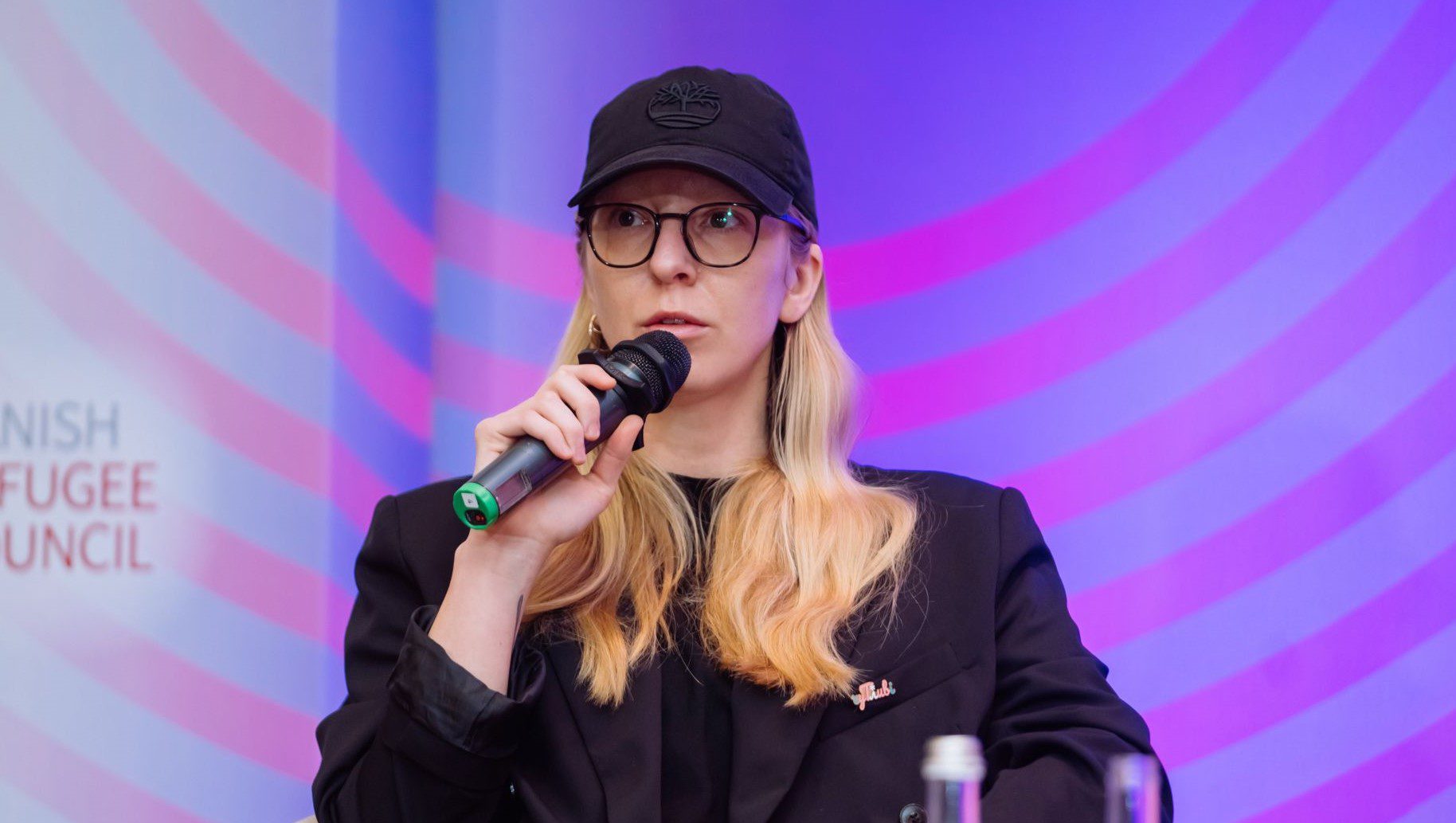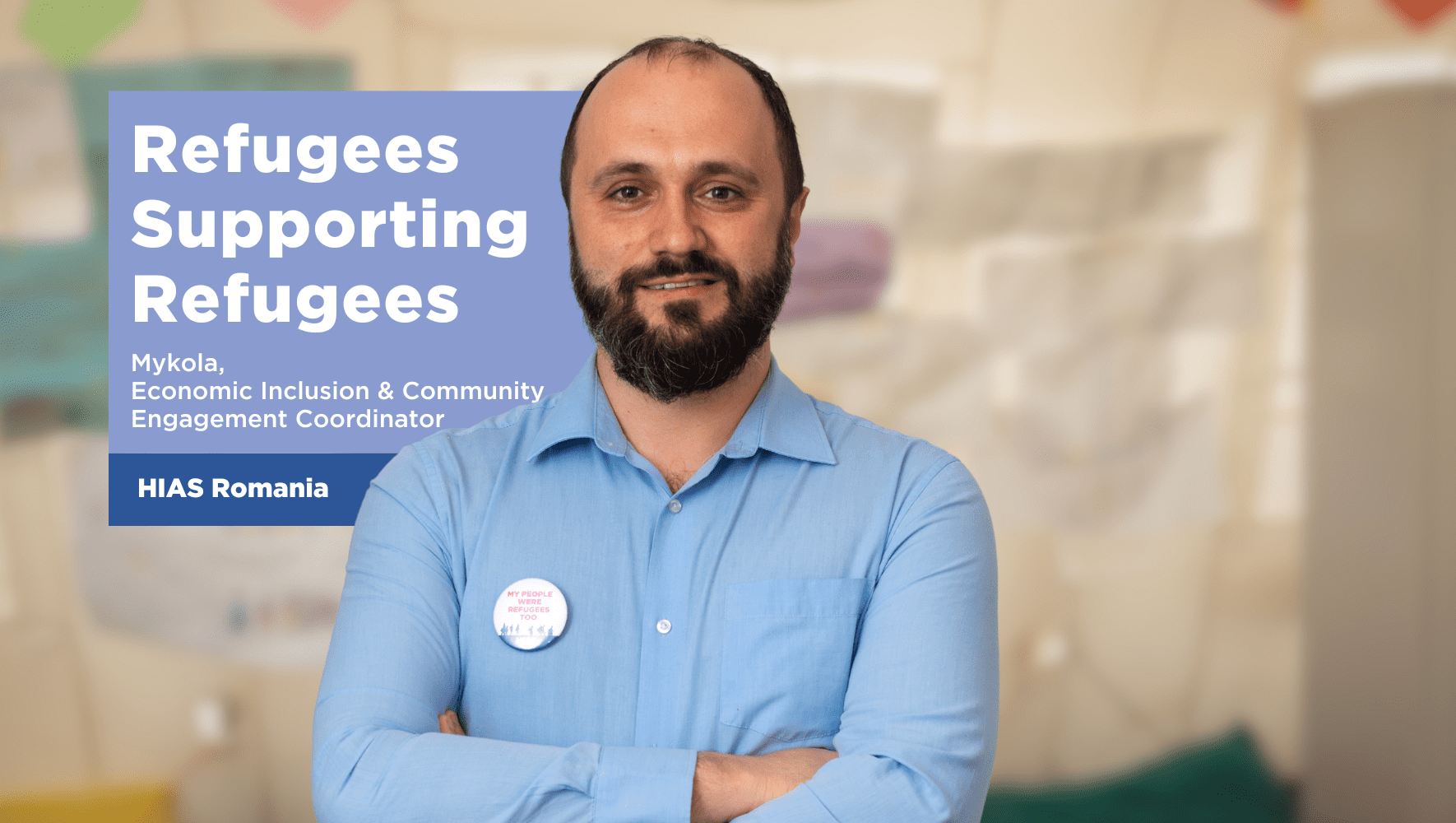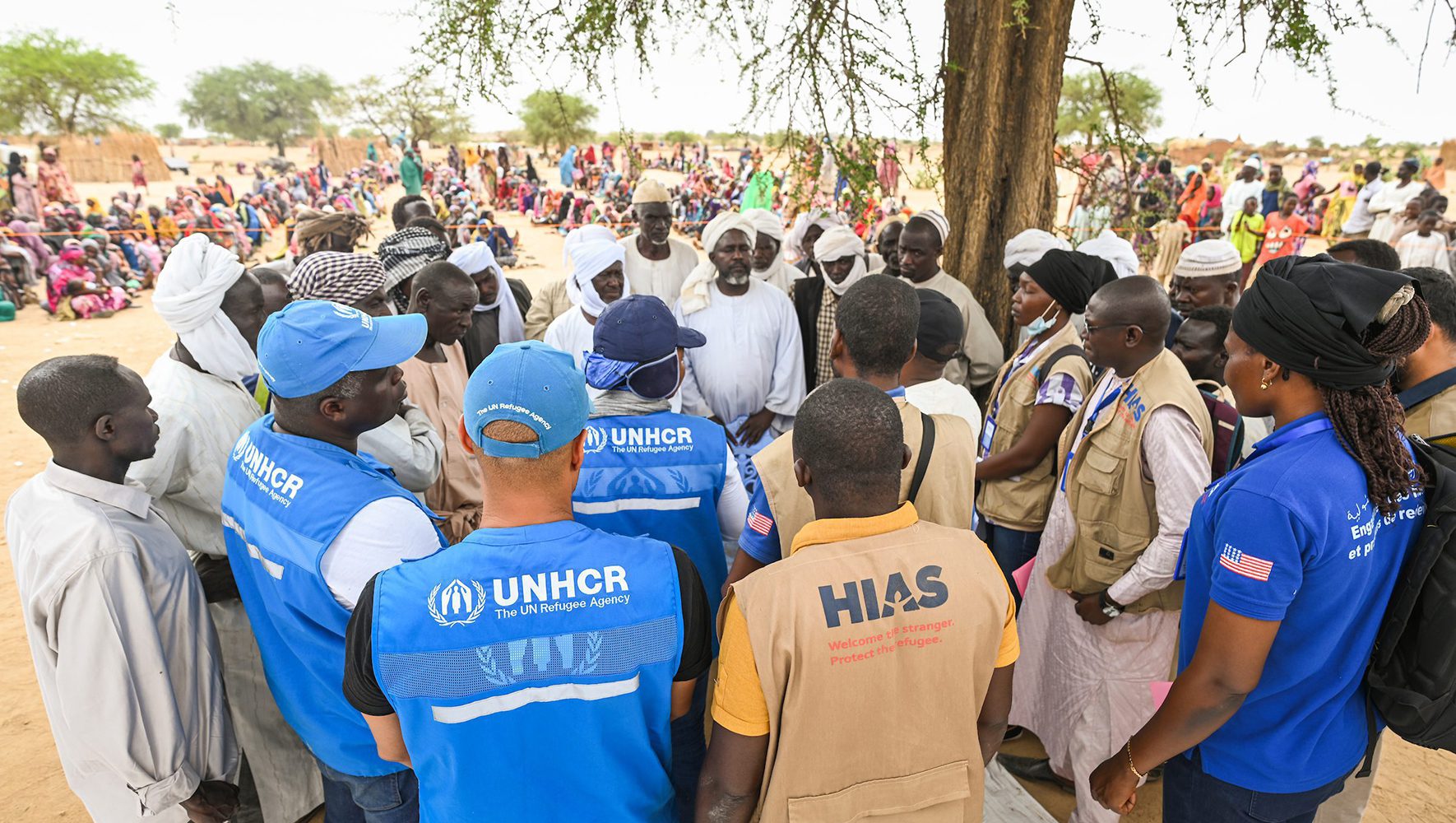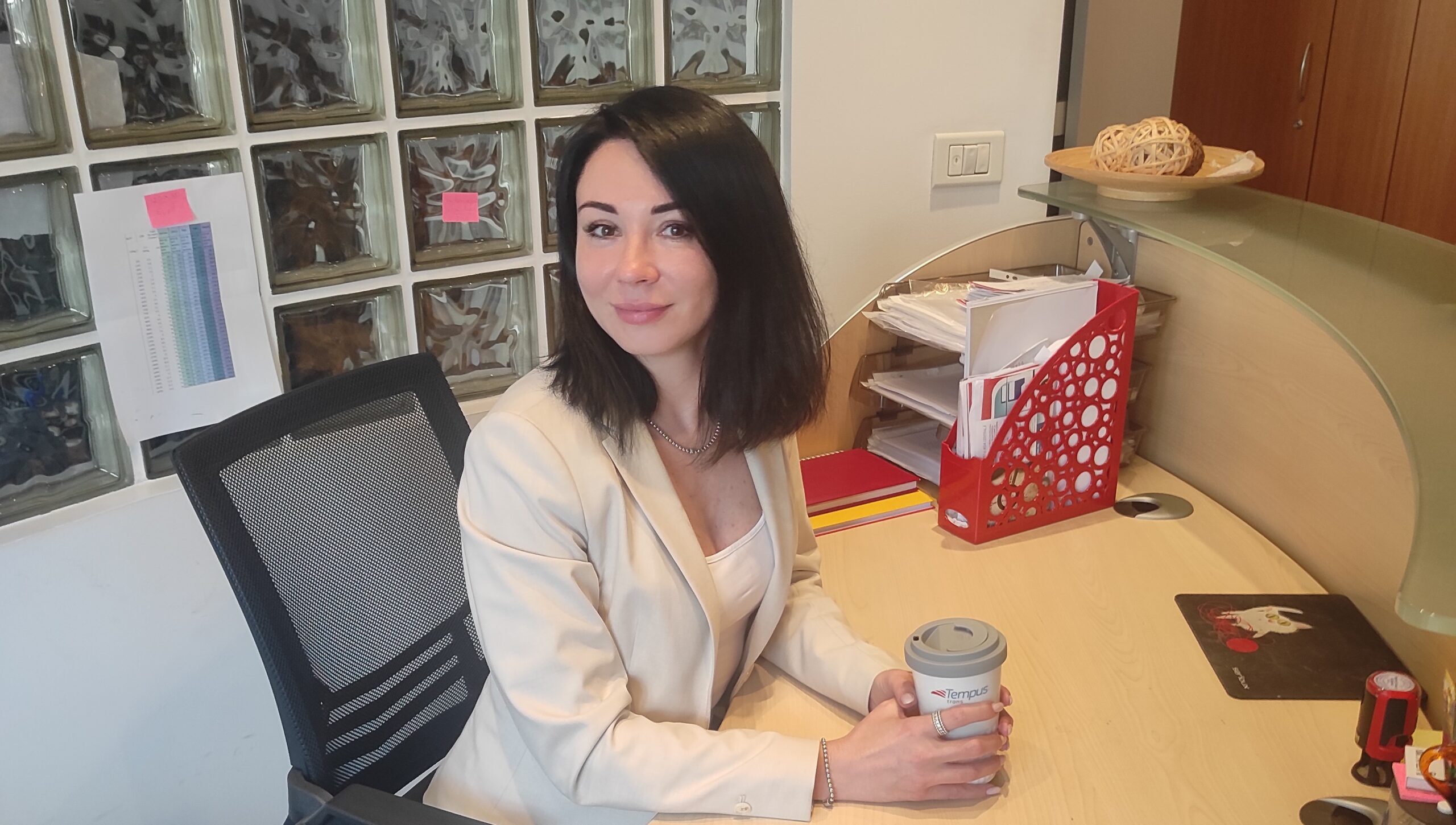Non-Ukrainian Asylum Seekers Left Out in the Cold
By Sharon Samber, HIAS.org
Jan 26, 2023
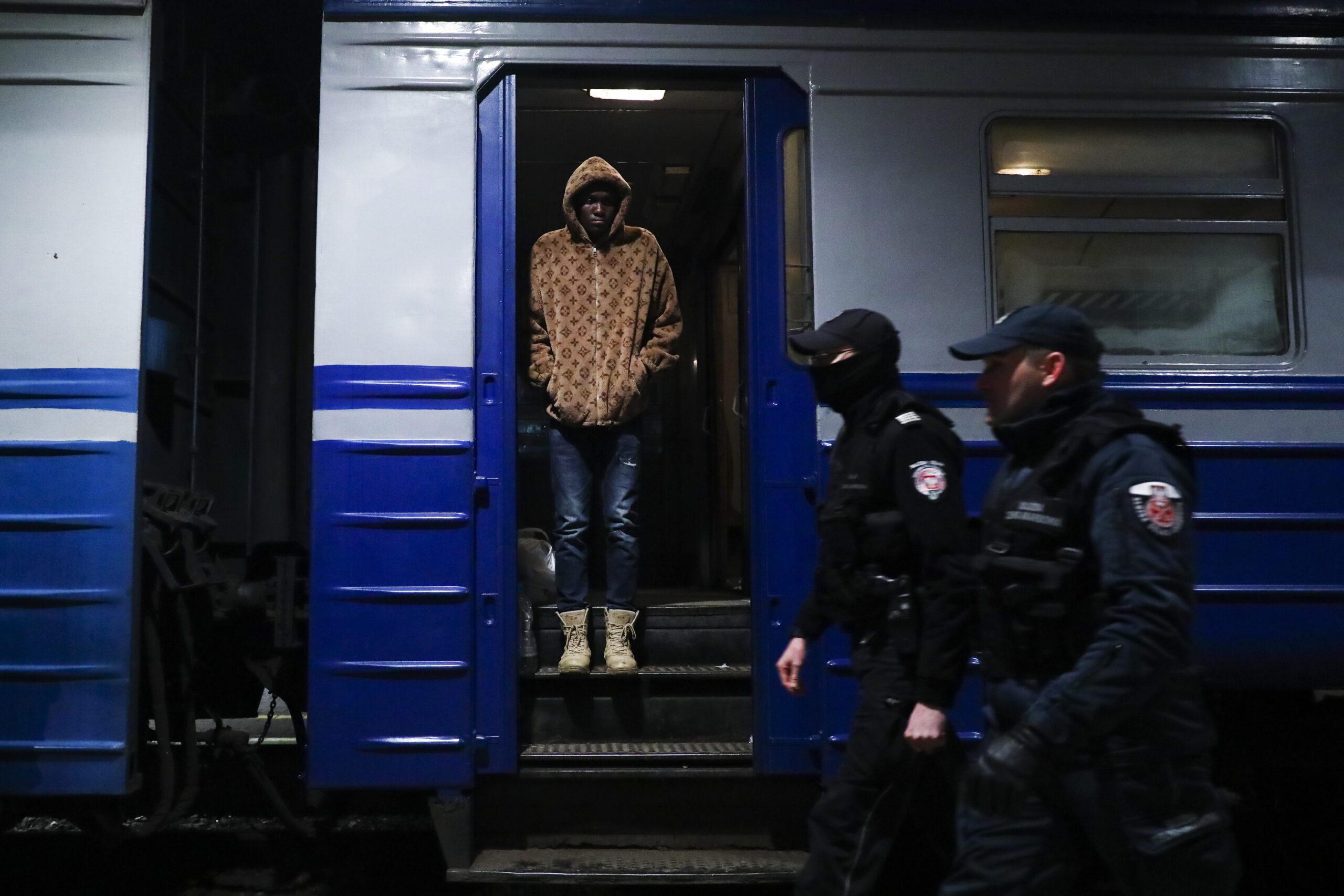
People arrive on a train from Ukraine at the main railway station in Przemysl, Poland, following the Russian invasion of Ukraine. February 28, 2022. (Beata Zawrzel/NurPhoto via Getty Images)
Nour Khashouf could literally feel when things went from bad to worse.
On the morning of February 24, 2022, she, like millions of people across Ukraine, was awakened by bombs and sirens as the country was attacked by Russian forces. Nour frantically arranged for her mother and brother to join her in fleeing Odessa, where they lived, for the Polish border. Eighteen hours later, as the truck they hired with four others approached the city of Lviv, locals handed out food and chocolates to the thousands streaming by. Their kindness made Nour cry.
But when Nour, 21, and her family and friends got to the border, they encountered a decidedly different response. Ukrainian border guards were allowing Ukrainians to cross quickly, but non-Ukrainians, like Nour, were stopped. She said the guards were beating people and firing their guns into the air. Nour and her group — Syrian, Lebanese, Palestinian, Egyptian, and Iraqi refugees and students — waited at the Ukrainian side of the border for a whole day without food. Then it started snowing and the temperature dropped, and that’s when Nour felt her feet begin to hurt.
“I slept in the snow,” Nour recalled. “People I didn’t know hugged me — we hugged each other because it was very cold.”
Eleven months after Russia’s full-scale invasion of Ukraine, Europe has provided an unprecedented level of support and rights to Ukrainian nationals. But previously displaced asylum seekers and refugees like Nour have struggled to access similar protection. A new report by HIAS and Right to Protection (R2P) found that while the European Union (EU)’s landmark decision to invoke the Temporary Protection Directive granted rights and status to at least 4.9 million people, many non-Ukrainians fleeing Ukraine did not get the same support.
“Some of the people we spoke to waited up to five months to receive temporary protection, while Ukrainian nationals are issued documents on the same day in at least 17 countries,” said Katharine Woolrych, HIAS Europe’s advocacy officer. The report, which examines the scope and limitations of the policies enacted by the EU and its member states, shows that more than 40 percent of the survey respondents do not have access to full housing assistance, nearly 40 percent cannot access free medical care, and non-Ukrainians do not enjoy the right to move freely between EU states.
"Some of the people we spoke to waited up to five months to receive temporary protection, while Ukrainian nationals are issued documents on the same day in at least 17 countries."
Katharine Woolrych, HIAS Europe’s advocacy officer
Nour’s odyssey began at the start of Syria’s civil war, during which her father died, in 2011. She left Syria with her mother and seven siblings and went to live in Lebanon for seven years. One of her brothers then went to Ukraine, and when he had a serious motorcycle accident in 2017, Nour and her mother went there to help him. Her brother still needed help months later, so Nour applied for asylum so she could stay.
Nour remained in Ukraine until Russia’s full-scale invasion forced her to take flight yet again. Along the way, she repeatedly experienced the limitations of being a non-Ukrainian asylum seeker. After walking for hours to reach the Polish side of the border, officials separated her from her brother, who has disabilities, and kept Nour and her mother in a pen without access to toilets or food for a full day. Ukrainians, meanwhile, were allowed to pass through the border to where buses and cars were waiting for them.
Five days after leaving Odessa, Nour and her family finally arrived in Germany. She applied for temporary protection soon after, but didn’t get her residence permit until eight months later. Nour struggled to open a bank account, apply for benefits, and enroll in German classes. She says she has experienced racism and faced discrimination that others fleeing Ukraine did not. Prospective employers would ask her if she spoke German and, when she said no, they would say they didn’t have work — even though Nour knew that Ukrainians who didn’t speak German were getting jobs. The inequality she faced in Europe has greatly disillusioned her.
“We are like Ukrainian people: We have the same problems, we left our home,” she said. “Just give us what you gave them.”
In the report, HIAS says it is not too late for the EU and member states to act to protect all people fleeing Ukraine, whether they hold Ukrainian nationality or not. It recommends the EU and member states take these concrete actions: extend the scope of temporary protection; make tailored information, legal advice, and support available; provide necessary documents; facilitate access to housing, food, and healthcare; and collect data to better respond to these people’s needs.

(Courtesy of Nour Khashouf)
“We are like Ukrainian people: We have the same problems, we left our home. Just give us what you gave them.”
Nour Khashouf, non-Ukrainian asylum seeker
Nour is now in Sweden with her sister and is determining whether she can apply for asylum status there, as her protection in Germany is only temporary. She is exploring her options for the future and thinks she might want to be a flight attendant to see more of the world. But Nour says it is more likely that she will attend university, after which she may want to work with governments or UNHCR in the refugee assistance field.
“I feel what refugees feel, so I can work with them and help them and talk with them,” Nour said, thinking of how some refugees cannot talk about their experiences because they are afraid or don’t have the ability to tell their stories.
“I want to be their voices to the world,” she said. “I will be their voice.”


